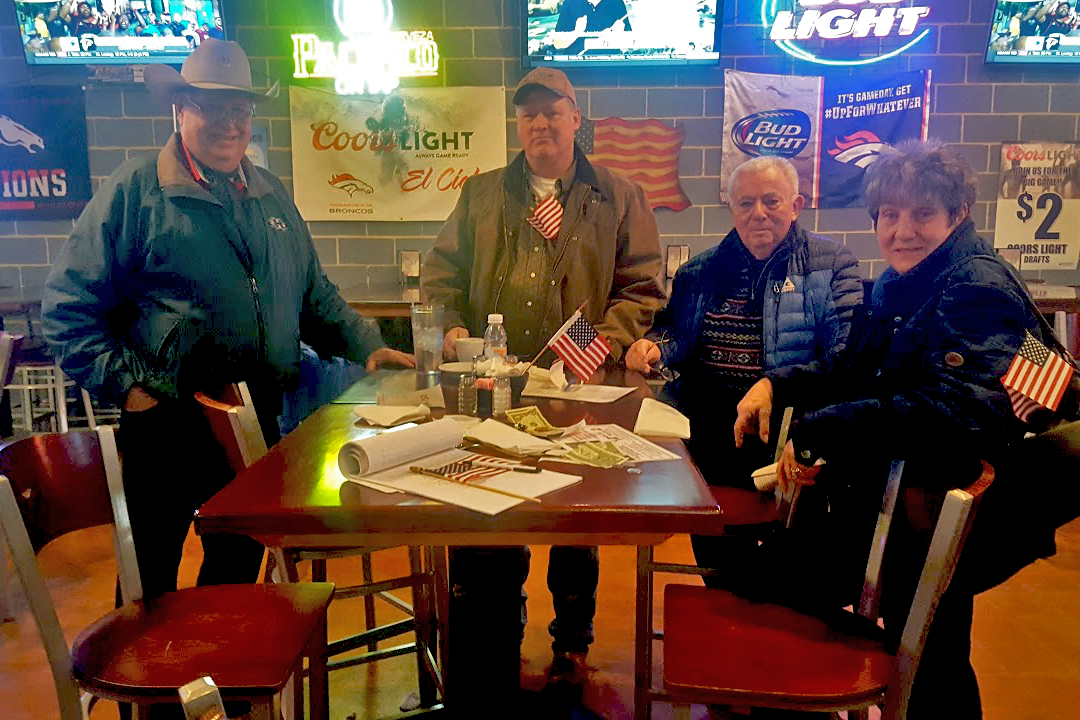
Just weeks ago, Burmese refugee Sultan Ahmed of Greeley thought he'd see his family again in less than a year. Then President Trump issued his executive order on refugees and immigration.
"Because of this executive order, there are no refugees coming for four months," he said, swiping through photos of his wife and four children. "My situation has gotten very complicated."
Ahmed came to Greeley about a year ago through a U.N. refugee resettlement program. He is part of the Rohingya community, a Muslim minority group that lives without legal protection in Myanmar. Ahmed said he fled the country after being extorted and tortured by police.
A lawyer told him that with the immigration order in place, it would likely take two or more years to bring his family to Greeley. Ahmed, who helps other refugees as a community navigator at the Global Center for Refugees in Greeley, was glad to have the guidance. The order just confused many others at the center.
For now, Ahmed’s plans are back in motion. A federal judge in Seattle halted enforcement of key parts of the immigration order Friday. Other courts then denied attempts from Trump administration to put a stay on the decision. As a result, refugee are again being resettled in the U.S. and travelers of seven Muslim-majority countries can enter the country.
The legal tumult over immigration has revealed a deep political division in Weld County, where Greeley is the largest city.
The area is solid Trump country. Almost 57 percent of people in Weld voted for the president, but the city also has a growing refugee population. Lutheran Family Services, which helps provide food and cash assistance for refugees, has 360 clients in the area.
Many of the new refugee arrivals are Muslims from Somalia or other parts of East Africa. They work in the county’s thriving meatpacking industry, which led to a tense labor dispute in 2008 when JBS Swift fired more than 100 workers after a disagreement over Ramadan prayer accommodations.
The memory of that conflict was still raw at a regular GOP breakfast at El Cielo — a Mexican sports bar across town from the Global Refugee Center.
Karen Korins, a retired business and finance professor, was one of about thirty local Republicans at the gathering. For her, the executive order was something like a corporate review. The 120-day pause on certain travelers and refugees would have given the new administration time to assess immigration policy.
“As a person who believes Trump will try to protect us, that’s what we’re looking for: someone to close the borders, someone to keep bad people out,” she said. “But how do you know who’s a bad person?”
That view isn’t as rare as someone might think if they’d only seen press coverage of protests against the president’s order. According to a Reuters poll, 49 percent of Americans support the order while 41 percent oppose it.

Michael Gale, who ate eggs at the table, liked the rules precisely because it they focus on seven Muslim-majority countries.
“We should only let people come in who are willing to assimilate into our culture. Our culture is Judeo-Christian. Their culture is warlord, murdering, lying, pedophile tyrants,” he said
That’s a view many will find offensive and it’s a characterization that goes against written tenets of Islam. Additionally, studies show that Muslim Americans largely adopt U.S. customs and culture.
But civil liberties groups agree with Gale that the order prioritizes one religion over another. In fact, the American Civil Liberties Union argues that is what makes the order unconstitutional, because it violates the Establishment Clause of the First Amendment.
Skip Carlson, an insurance agent who organizes the GOP breakfast, thought little of the legal challenges from the ACLU and other groups. To punctuate his point, he started pulling out pocket-sized Constitutions and slapping them on the breakfast table.
“This Constitution doesn't protect the rights of a person in Yemen! It doesn't protect the rights of a person in Sweden! You know whose rights it protects?” he asked. “Ours!”
Samuel Adams, an oil field consultant at the breakfast, said he’d like to get to know new refugee arrivals in Greeley, but they’re generally standoffish.
“I'll see Middle Easterns at WalMart,” he explained. “I'll walk up to them and I'll say ‘hi, how are you doing?’ No response. Not even an eye glance, not even an acknowledgment.”

Greeley Mayor Tom Norton, a Republican, said that he encourages patience when faced with these kind of complaints.
“When you walk down the street of Greeley, it’s a friendly community, and so you say ‘hi’ to a lot of people. But it takes a while for a refugee to learn some of the customs and the language.”
But Norton is hopeful. Reported crimes are rare in the neighborhoods where refugees tend to live. Public schools are putting on plays about immigrant cultures. Norton said integration isn’t a new challenge for the community. The town is an agricultural powerhouse exactly because it has welcomed farmers from Europe, Mexico and other parts of the world.
“It takes a lot of work,” but Mayor Norton thinks Greeley can benefit from the diversity it has.
What Are Your Questions?
We want to know what you’re curious about when it comes to refugees in Colorado. Email us at [email protected], leave your question in the comments or tweet us @newscpr. We’ll start looking into it for future stories.









